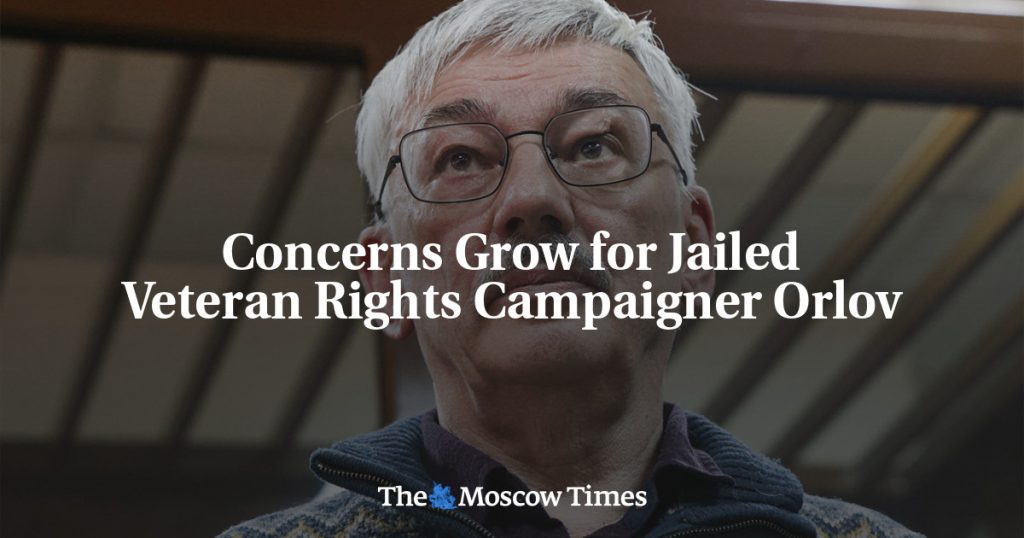The Nobel-Prize-winning Memorial human rights group has expressed concern over the condition of its co-founder Oleg Orlov, who was recently imprisoned for criticizing Russia’s invasion of Ukraine. Orlov, 70, was sentenced to two-and-a-half years in prison for “discrediting” the Russian army after speaking out against the invasion and the Kremlin. Memorial stated that Orlov’s health is at risk of irreversible consequences, noting that he was losing his hearing and had become unwell due to inhumane treatment by prison authorities. Orlov’s lawyer has been unable to communicate with him confidentially for over two weeks, hindering his efforts to appeal the prison sentence.
The conditions of Orlov’s incarceration were cited by Memorial as impeding his ability to appeal the prison sentence against him. Memorial, established in the late 1980s, is known for preserving the memory of victims of communist repression and advocating against rights violations. Russian authorities disbanded the organization in late 2021 amidst a crackdown on dissent. Despite facing wartime military repression, Orlov chose to remain in Russia.
Orlov’s imprisonment has raised concerns about the state of human rights in Russia under the current regime. Both Memorial and international observers have condemned the sentencing of Orlov for simply expressing his views on the invasion of Ukraine. The situation highlights the restrictions on freedom of speech and the consequences faced by those who speak out against the government or military actions in Russia. Orlov’s deteriorating health and lack of access to legal counsel further underscore the challenges faced by human rights defenders in the country.
The case of Oleg Orlov is emblematic of the broader crackdown on dissent and the shrinking space for civil society in Russia. Since the disbandment of Memorial and other human rights organizations, activists and defenders have faced increasing pressure and persecution from the authorities. Orlov’s imprisonment is part of a broader pattern of targeting individuals who speak out against the government or advocate for human rights and democracy in Russia. The situation has drawn international attention to the deteriorating human rights situation in the country.
Memorial’s advocacy for Orlov and other political prisoners in Russia reflects its ongoing commitment to defending human rights and promoting accountability for abuses. The group’s efforts to draw attention to Orlov’s case and call for his release are part of a broader push for justice and respect for human rights in the country. Despite facing challenges and setbacks, Memorial continues to work tirelessly to hold the Russian government accountable for its actions and to advocate for the rights of all individuals, including those who are unjustly imprisoned or persecuted for their beliefs.
As the international community monitors the situation in Russia and the treatment of activists like Oleg Orlov, the need for solidarity and support for human rights defenders in the country remains crucial. The case of Orlov underscores the risks and dangers faced by those who speak out against injustice in Russia, and the importance of standing up for their rights and freedoms. Memorial’s work to highlight the plight of Orlov and others in similar situations serves as a reminder of the ongoing struggle for human rights and democracy in Russia, and the need for continued advocacy and action to promote a more just and inclusive society.















